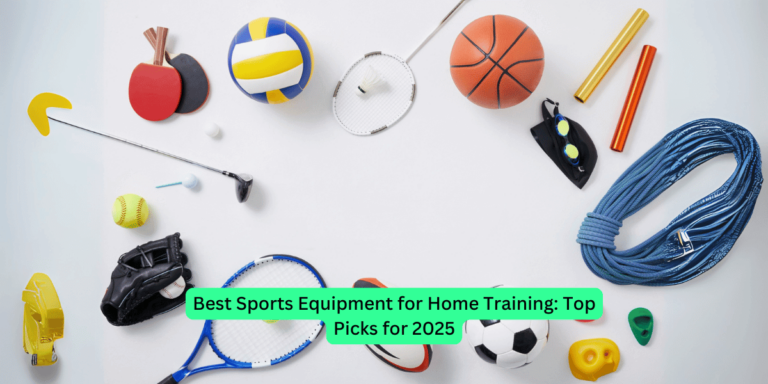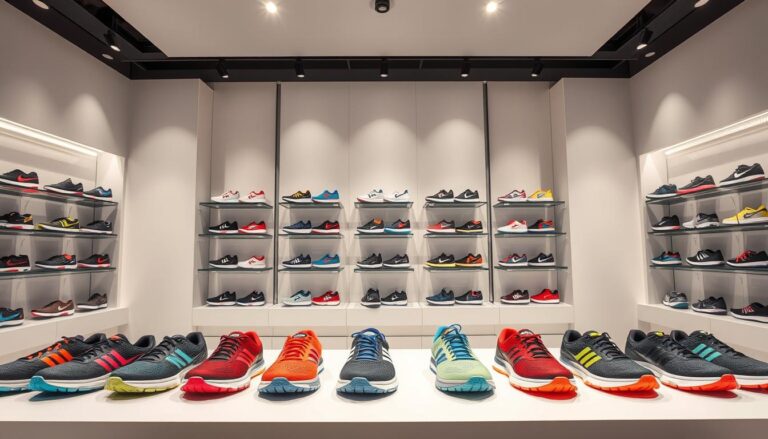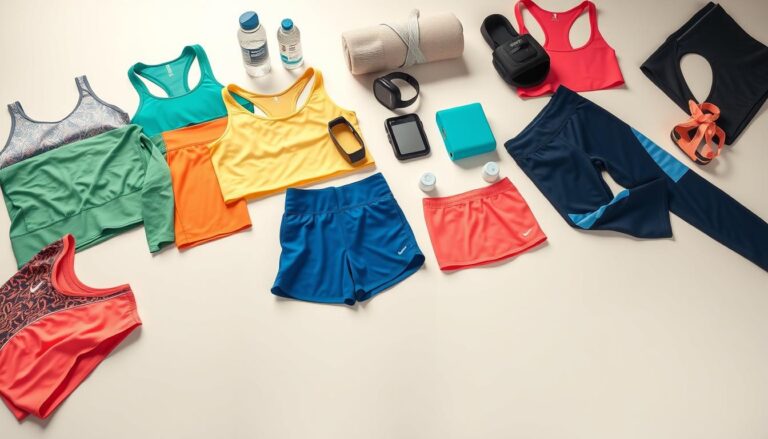How to Improve Athletic Performance Fast: Expert Tips & Tricks
To improve athletic performance quickly, focus on key strategies. These methods can boost your results in no time. Athletes often seek ways to enhance their performance fast. Whether you’re a seasoned pro or a beginner, improving your athletic ability is always a goal. Quick gains can be achieved through targeted training, proper nutrition, and mental preparation. Each of these elements plays a crucial role in reaching your peak performance.
Understanding the right techniques and how to apply them is essential. This blog will guide you through effective methods to elevate your athletic performance swiftly, ensuring you can achieve your goals and excel in your sport. Get ready to learn actionable tips that can make a significant difference in your athletic journey.
Nutrition Essentials
Improving athletic performance quickly is a goal for many athletes. One of the keys to achieving this is focusing on nutrition essentials. Proper nutrition fuels your body, aids in recovery, and boosts overall performance. Let’s dive into some crucial aspects of nutrition that can help you reach your peak performance fast.
Macronutrient Balance
Maintaining a balanced intake of macronutrients is essential for athletes. These nutrients include carbohydrates, proteins, and fats, each playing a vital role in your body’s functioning.
Carbohydrates are your body’s primary energy source. They should make up about 45-65% of your total daily calories. Choose complex carbs like whole grains, vegetables, and fruits for sustained energy.
- Whole grains: brown rice, oatmeal, quinoa
- Vegetables: sweet potatoes, broccoli, spinach
- Fruits: apples, bananas, berries
Proteins are crucial for muscle repair and growth. Athletes should aim for about 15-25% of their daily calories from protein. Include lean meats, dairy, legumes, and nuts in your diet.
- Lean meats: chicken breast, turkey, fish
- Dairy: Greek yogurt, cottage cheese, milk
- Legumes: lentils, chickpeas, black beans
- Nuts: almonds, walnuts, peanuts
Fats are important for hormone production and energy. They should constitute about 20-35% of your daily calories. Focus on healthy fats from sources like avocados, nuts, seeds, and olive oil.
- Avocados
- Nuts and seeds: chia seeds, flaxseeds
- Olive oil
- Fatty fish: salmon, mackerel
Balancing these macronutrients can enhance your energy levels, improve recovery times, and boost overall athletic performance.
Hydration Tips
Proper hydration is vital for any athlete. Water regulates body temperature, lubricates joints, and transports nutrients. Dehydration can lead to fatigue, cramps, and decreased performance.
Athletes should drink about 3.7 liters (for men) and 2.7 liters (for women) of water daily. This includes all beverages and food moisture.
Drink at least 500 ml of water 2-3 hours before exercising. This ensures your body starts hydrated.
During intense exercise, drink about 150-250 ml every 15-20 minutes. This can help maintain fluid balance and prevent dehydration.
| Exercise Duration | Water Intake |
|---|---|
| Less than 1 hour | Water is sufficient |
| More than 1 hour | Sports drinks with electrolytes |
After your workout, drink 500-750 ml of water for every pound lost during exercise. This helps replenish lost fluids and aids in recovery.
Proper hydration improves endurance, reduces fatigue, and enhances recovery, making it a critical component of athletic performance.
Effective Training Regimens
Improving athletic performance quickly requires dedication and a smart approach. Effective training regimens play a crucial role in achieving this. These regimens are structured plans that help athletes enhance their skills and physical abilities. They include various types of workouts, each targeting specific areas of performance. By focusing on strength and endurance, athletes can see rapid improvements. Let’s explore how these can be effectively incorporated into your routine.
Strength Training
Strength training is essential for building muscle and power. It involves exercises that target major muscle groups, increasing their ability to perform. This type of training not only improves muscle strength but also boosts overall athletic performance.
Key components of strength training:
- Compound exercises: Squats, deadlifts, and bench presses work multiple muscles at once.
- Progressive overload: Gradually increase weights or resistance to challenge muscles.
- Consistency: Regular workouts ensure continuous muscle growth.
Incorporating these elements can lead to significant improvements. Here’s a sample weekly schedule:
| Day | Exercise |
|---|---|
| Monday | Squats and lunges |
| Wednesday | Deadlifts and pull-ups |
| Friday | Bench press and push-ups |
By following this regimen, athletes can see improvements in their strength and explosiveness. It’s important to focus on form to prevent injuries and maximize gains.
Endurance Workouts
Endurance workouts are crucial for athletes who need stamina and long-lasting energy. These workouts improve the cardiovascular system, allowing athletes to perform longer without fatigue.
Types of endurance workouts:
- Running: Long-distance runs build stamina.
- Cycling: Great for improving leg endurance and cardiovascular health.
- Swimming: Combines strength and endurance training.
Integrating these workouts can enhance endurance rapidly. Consider this sample plan:
| Day | Workout |
|---|---|
| Tuesday | 5km run |
| Thursday | Cycling for 30 minutes |
| Saturday | Swimming laps for 20 minutes |
Consistency in these workouts improves endurance and energy levels. Athletes should monitor their progress and adjust intensity accordingly. Hydration and nutrition play significant roles in endurance training, aiding in recovery and performance.
Mental Conditioning
Improving athletic performance fast is a common goal for many athletes. While physical training is crucial, mental conditioning plays an equally important role. Mental conditioning helps athletes stay focused, confident, and resilient. Two key aspects of mental conditioning are visualization techniques and mindfulness practices. These methods can significantly enhance performance by preparing the mind for the challenges ahead.
Visualization Techniques
Visualization is a powerful tool for athletes. It involves imagining success in your sport. By creating mental images of achieving goals, athletes can boost their confidence and focus. Here are some effective visualization techniques:
- Detailed Imagery: Visualize every detail of your performance. Imagine the environment, the movements, and the feelings associated with success.
- Positive Outcomes: Focus on positive outcomes. Picture yourself winning a race, scoring a goal, or executing a perfect routine.
- Repetition: Repeat your visualization regularly. This helps reinforce the mental image and increases its impact.
- Combining Senses: Use all your senses in visualization. Hear the crowd, feel the ground, and see the goal.
Here’s a simple table to guide your visualization practice:
| Step | Description |
|---|---|
| Environment | Imagine the setting, including weather, crowd, and location. |
| Movements | Visualize each move, step by step, with precision. |
| Emotions | Feel the emotions of success, confidence, and joy. |
| Repetition | Practice visualizing daily to strengthen the mental image. |
Mindfulness Practices
Mindfulness helps athletes stay present and focused. It reduces stress and improves concentration. Incorporating mindfulness practices into your routine can enhance your performance. Here are some effective mindfulness techniques:
- Breathing Exercises: Practice deep breathing. It calms the mind and increases focus.
- Body Scan: Perform a body scan to increase awareness of physical sensations. Start from your toes and move upwards.
- Meditation: Meditate regularly to improve mental clarity. Focus on your breath or a specific thought.
- Mindful Movement: Engage in mindful movement activities like yoga. It helps in connecting the mind and body.
Consider these steps to practice mindfulness:
- Sit or lie down in a comfortable position.
- Close your eyes and take deep breaths.
- Focus on each breath, feeling the rise and fall of your chest.
- Perform a body scan, noticing any tension or discomfort.
- End with a few minutes of quiet meditation.
Regular mindfulness practice can lead to better mental focus, reduced anxiety, and improved athletic performance.
Recovery Strategies
Improving athletic performance quickly requires a focus on recovery strategies. Effective recovery helps the body repair and rebuild, allowing athletes to train harder and perform better. Two key areas to consider are sleep optimization and active recovery methods.
Sleep Optimization
Sleep plays a crucial role in athletic performance. During sleep, the body repairs tissues, builds muscle, and replenishes energy stores. Here are some tips to optimize sleep for better recovery:
- Establish a consistent sleep schedule: Go to bed and wake up at the same time every day. This helps regulate the body’s internal clock.
- Create a sleep-friendly environment: Keep your bedroom cool, dark, and quiet. Use blackout curtains and earplugs if necessary.
- Limit screen time before bed: Avoid electronic devices at least an hour before bedtime. The blue light from screens can interfere with sleep quality.
- Practice relaxation techniques: Engage in calming activities like reading or meditation before bedtime. This helps reduce stress and prepares the body for sleep.
In addition to these tips, ensure you are getting enough sleep each night. Adults typically need 7-9 hours of sleep. For athletes, this number might be higher due to increased physical demands.
| Factors | Recommendations |
|---|---|
| Bedtime Routine | 30 minutes of relaxing activities |
| Sleep Duration | 7-9 hours |
| Sleep Environment | Cool, dark, quiet |
Active Recovery Methods
Active recovery involves low-intensity exercises that promote blood flow and muscle recovery without adding stress to the body. These methods can be integrated into daily routines to boost performance:
- Light aerobic exercise: Activities like walking, cycling, or swimming at a relaxed pace can help increase circulation and reduce muscle stiffness.
- Stretching: Incorporate dynamic and static stretching to improve flexibility and reduce the risk of injury. Focus on major muscle groups.
- Foam rolling: Use a foam roller to massage muscles and release tension. This can help alleviate soreness and improve mobility.
- Yoga: Practicing yoga can enhance muscle elasticity, balance, and mental relaxation. Integrate yoga sessions weekly for optimal recovery.
Active recovery should be tailored to individual needs and fitness levels. Listen to your body and adjust the intensity and duration of recovery activities accordingly.
Incorporating both sleep optimization and active recovery methods can significantly enhance athletic performance. These strategies help the body recover efficiently, ensuring athletes are ready for their next training session.
Supplement Options
Boosting athletic performance quickly often involves focusing on various aspects like training, diet, and recovery. One effective way to see rapid improvements is through the strategic use of supplements. These supplements can enhance your energy levels, reduce fatigue, and improve overall endurance. Let’s explore some popular options and the best timing and dosage to maximize their benefits.
Popular Supplements
Several supplements are known for their effectiveness in improving athletic performance. Here are some of the most popular:
- Creatine: Increases muscle mass and strength.
- Beta-Alanine: Reduces muscle fatigue and enhances endurance.
- Caffeine: Boosts energy and alertness.
- Branched-Chain Amino Acids (BCAAs): Helps in muscle recovery and reduces soreness.
- Protein Supplements: Supports muscle repair and growth.
These supplements work in different ways and can be chosen based on your specific needs. For instance, creatine is ideal for those looking to gain muscle quickly, while beta-alanine is perfect for athletes focusing on endurance sports.
Here’s a quick look at their benefits in a table:
| Supplement | Benefits |
|---|---|
| Creatine | Increases muscle mass, strength, and exercise performance. |
| Beta-Alanine | Reduces muscle fatigue, enhances endurance. |
| Caffeine | Boosts energy, alertness, and focus. |
| BCAAs | Helps muscle recovery, reduces soreness. |
| Protein Supplements | Supports muscle repair and growth. |
Timing And Dosage
The effectiveness of these supplements can depend heavily on their timing and dosage. Here’s a brief guide:
- Creatine: Take 3-5 grams daily. Best consumed post-workout with a carbohydrate source.
- Beta-Alanine: 2-5 grams per day. Split into smaller doses to avoid tingling sensations.
- Caffeine: 200-400 mg around 30-60 minutes before exercise. Avoid late in the day to prevent sleep disruption.
- BCAAs: 5-10 grams before or during your workout. Helps in reducing muscle soreness.
- Protein Supplements: 20-30 grams post-workout. Aids in muscle recovery and growth.
Timing your supplement intake properly can enhance their effectiveness. For instance, caffeine should be consumed before a workout to boost energy levels. On the other hand, protein supplements are more effective post-workout for muscle recovery.
Here’s a table for quick reference:
| Supplement | Recommended Timing | Dosage |
|---|---|---|
| Creatine | Post-workout | 3-5 grams daily |
| Beta-Alanine | Daily (in smaller doses) | 2-5 grams |
| Caffeine | 30-60 minutes before workout | 200-400 mg |
| BCAAs | Before or during workout | 5-10 grams |
| Protein Supplements | Post-workout | 20-30 grams |
By following these guidelines, you can make the most out of your supplements and see quicker improvements in your athletic performance.
Frequently Asked Questions
How To Get Faster As An Athlete?
To get faster, athletes should focus on sprint training, strength exercises, and proper nutrition. Consistent practice and rest are crucial. Incorporate interval workouts, plyometrics, and agility drills to enhance speed.
What Do Athletes Take For Instant Energy?
Athletes often take energy gels, sports drinks, or bananas for instant energy. These provide quick carbohydrates and electrolytes.
Why Is My Athletic Performance Going Down?
Your athletic performance may decline due to overtraining, inadequate rest, poor nutrition, or stress. Evaluate these factors to improve.
What Is The Best Workout For Athletes?
The best workout for athletes includes strength training, cardio, flexibility exercises, and sport-specific drills. Balance and recovery are essential.
What Are Quick Tips To Boost Athletic Performance?
Improve your diet. Stay hydrated. Get plenty of sleep. Practice regularly. Use proper techniques. Train with a coach.
Conclusion
Improving athletic performance quickly involves dedication and smart strategies. Focus on proper nutrition, regular exercise, and adequate rest. Listen to your body and avoid overtraining. Stay consistent and patient with your efforts. Small changes can lead to big results over time.
Keep a positive mindset and track your progress. Celebrate your achievements, no matter how small. These steps can help you reach your athletic goals faster. Stay motivated and enjoy the journey to better performance.





